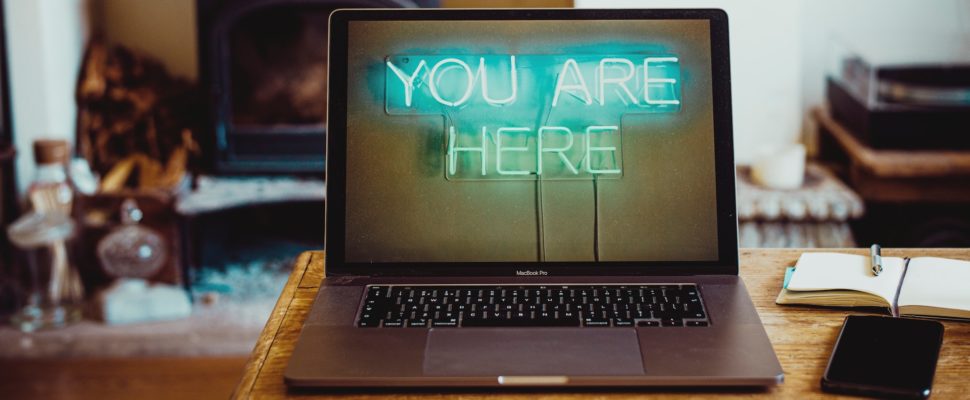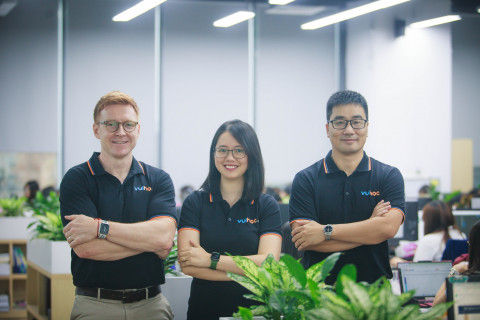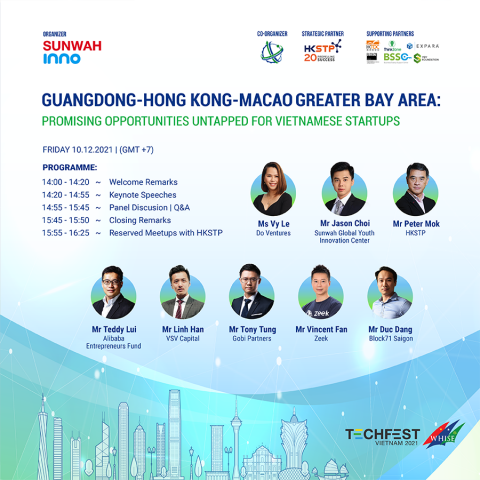Published December 28, 2020
It’s no done deal: Deal-making 2.0 in SE Asia

"There is a sense of optimism due to progress on vaccine developments and the liquidity in the market,” says Lip Kian Ang, a Singapore-based partner at international law firm Morrison and Foerster. Ang is alluding to the hopeful uptick in deals being closed in Southeast Asia in the fourth quarter of 2020, and in the new year.
Venture capitalists are known to travel around Southeast Asia, or the world, for meetings. In a post-Covid world, is it possible to invest in a company if you’ve never met them in person?
While it isn’t entirely impossible to strike a deal virtually, travel restrictions did slow down the deal-making pace across Southeast Asia. As a result, there were fewer venture capital deals closed in the third quarter compared to the previous quarter, notes Morrison and Foerster, as the pandemic-fuelled lockdowns in the region started to take effect only around April.
This is in stark contrast to 2019, which was a great year for Southeast Asia in terms of receiving private capital from investors around the world. Regional investors were raising larger funds to tap into the region’s growth. With a digital economy that is poised to grow to US$300 billion by 2025, Southeast Asia attracted US$12 billion in 2019.
But on its way to 2025 came 2020. And Covid hit the region early.
Why, then, is Ang hopeful for a turnaround? Answer: FOMO.
That’s right. You see, if venture capitalists or private equity investors continue to wait things out, they will miss out on the big names seeking funds to grow their businesses. And so, they’re likely to jump right in.
Companies have also realised that investors took a wait-and-see approach in the first half of 2020. They didn’t actively go out there to fundraise, notes Nikhil Kapur, partner at Singapore-based seed investment firm STRIVE."There’s just a lot of good founders starting over with good teams. These people see that now is a great time to stop whatever they were doing before and start a tech company to build something new. Because a lot of things have been reset in the market and businesses are encountering new problems, so these startups are like: let’s build something to solve these new problems,” he tells The Ken.
Key takeaway? Businesses are seeking new solutions for new problems post-Covid.
And private investors have caught on. They’re also evolving to accommodate the new norms, in terms of deal-sourcing and deal-making, especially with travel restrictions still very much in place in the months to come.
1. Changes in term sheets
2020 has basically been the year of force majeure—a common clause in contracts that essentially frees both parties from liability or obligation when an extraordinary event or circumstance beyond the control of the parties (such as a war, epidemic or an event described by the legal term ‘act of God’) occurs.
Naturally, Covid-19 has led to greater scrutiny on provisions around such clauses. Ang said Morrison and Foerster has recently been helping clients review such provisions afresh.
This includes delving into the details in light of present circumstances, specifically the conditions under which the provision would be triggered, and the consequences of the provision being triggered––for example, whether a party can suspend its obligations for a pre-agreed time, or walk away from the deal altogether."There has also been greater due diligence scrutiny on the impact of Covid-19 in a target’s business. We were helping our clients formulate in-depth due diligence questions around, for instance, the impact of the pandemic on the target’s businesses and financial projections, as well as its crisis management policies,” adds Ang.
Remote working FTWSTRIVE’s Kapur said he found remote working to be much more productive. The regional VC firm has utilised the remote setting to optimise its deal-making process where a deal could now be closed in two weeks or less, instead of the usual four to six weeks.
Despite the economic downturn caused by the pandemic, things are not so dire to the extent where investors and companies start including a pay-to-play provision, which was rarely used in markets like the US until the dotcom bubble happened in early 2000s.
A pay-to-play provision pushes existing investors to participate in a new round of funding, or risk dilution and losing rights in their existing securities, and is often the subject of fierce resistance by investors, says Ang.
He believes the tech-based businesses in Southeast Asia are not in such a distressed situation that could justify the use of such a provision. If anything, quite a number of tech-based businesses have managed to survive or even thrive during the pandemic, especially those in the telemedicine and business-to-business ( B2B) space.
2. More bridging rounds
The effects of the pandemic are multiple-fold: consumers’ sentiments are low, investors have tightened their purse strings, and businesses are slowed. To survive, startups have naturally turned to their existing investors for bridge rounds (also known as rescue financing rounds) to either ease their cash flow problems or to pursue growth.
And for investors, the task of assessing which companies to support during this period is equally daunting.
Meng Xiong Kuok, the founder and managing partner of Singapore-based K3 Ventures notes that investment activities, where existing investors doubled down or extended bridge rounds to their portfolio companies have a "very strong bounce-back” after the initial wait-and-see period since Covid happened in early 2020.
For K3, he says that the firm has and will continue to focus on two things: One, whether the company can reasonably withstand a prolonged period of low/no revenue and how well the founder has demonstrated capital efficiency.
"Two, whether the product/service and business model remain or become even more relevant in a post-Covid world. If both boxes are checked, it could mean an opportunity to invest at good value,” shares Kuok.
Besides supporting existing portfolio companies, investors like Kuok are also not slowing on pursuing new investments. The upside of travel disruptions is that it increases the ability for founders and investors to get together over video calls––even at short notice, allowing for more informal and candid discussions."Another interesting outcome is that with the efficiency gains of virtual meetings, we have been able to connect with many more parties of a particular ecosystem within a set timeframe, which further shapes and informs our view on a given startup,” adds Kuok.
3. Local partners rise to the fore
Last but not least, travel restrictions have played spoilsport. Especially for face-to-face investment activities. But it does make room for local players, like Vietnamese VC firm Do Ventures.
A frontier or developing market like Vietnam is attractive to foreign investors. At least it has been in the last few years, especially among South Korean VCs. But thanks to Covid, these foreign investors often couldn’t keep up with the investment pace as they couldn’t meet the companies."Currently, the circumstances favor local investors and regional or global investors that have on-the-ground presence. Other VCs...managed this remotely by relying on good local partners and service providers like law firms and consultants"LIP KIAN ANG, SINGAPORE-BASED PARTNER, MORRISON & FOERSTERBesides, due to global uncertainties, foreign investors would also prefer to take a wait-and-see approach before making further moves in a new market like Vietnam.
Do Ventures’ co-founder and general partner Le Hoang Uyen Vy says, "Vietnamese companies have a very high potential in attracting foreign investments, but at the moment, there’s a bit of a drawback from investors”."Even foreign funds with local offices here are a little slow when it comes to decision-making during this time. Because the call is at the partner level, and when the partners can’t travel or do everything online, then it’s not easy,” she observes.
This rings true especially for STRIVE. Kapur shares that the firm has put its plan to enter the Vietnamese market on hold due to travel restrictions. "As a new market for us, we need to spend time on the ground to build our connections and network, but that hasn’t been possible due to Covid. This can only be reignited once we can travel again.”
Advantage, local funds."We can visit the company, meet the team, which helps a lot in terms of deal-making,” says Le, adding that Do Ventures has a "robust pipeline” to work on since its fund launch in September. The firm is looking to raise US$50 million for its debut fund and has gathered more than half of its target."
We also try to be as efficient and aggressive as we can, because this is when founders require our support more than ever. We launched our fund during Covid, because we see big opportunities in Vietnamese startups that have very strong fundamentals and we want to fuel their growth during this difficult time,” she says. Has Covid dampened investors’ appetite for Southeast Asian companies? Definitely not. If anything, 2021 will likely be the year where investors play catch up with promising startups that are emerging in a post-pandemic world.



